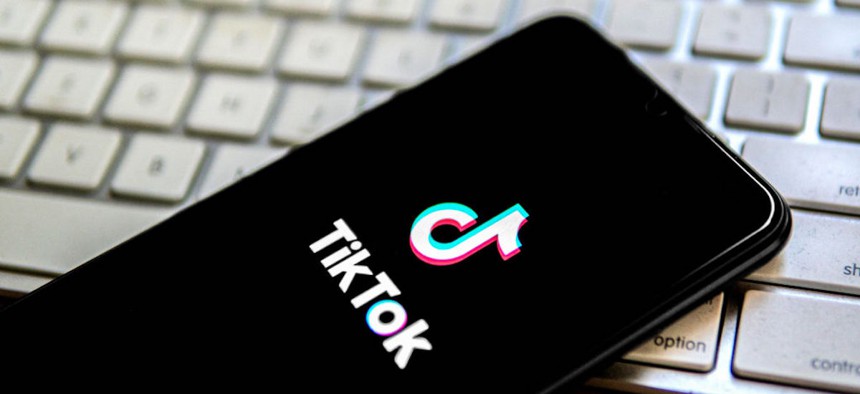More States Move to Ban TikTok From Government Devices

SOPA Images / Contributor via Getty Images
Maryland joined South Dakota in announcing a ban on state employees or agencies from using the app on government-issued devices, while South Carolina asked for it to be blocked.
Maryland and South Carolina became the latest states to ban TikTok for state government agencies and employees that use work-issued devices, following South Dakota’s ban last month.
Maryland Gov. Larry Hogan signed an emergency cybersecurity directive to bar the use of various products from companies believed to be under the influence of the Chinese and Russian governments. Those firms include TikTok, Kaspersky, Tencent (which operates WeChat), Alibaba and telecommunications companies Huawei and ZTE.
Agencies are required to remove the products from state networks and implement measures to prevent their future installation. State agencies also will be required to deploy network-based restrictions to prevent their use or access, the Dec. 6 guidance said.
The full directive states that agencies should use mobile device management software to ensure they have a full inventory of applications installed on mobile devices and should tap their network’ firewalls’ detective capabilities to identify state-owned assets that access or attempt to access banned applications.
Maryland officials said TikTok and other companies may be involved in espionage, surveillance and the “inappropriate collection of sensitive personal information.” State agencies had 14 days from the issuance of the directive to implement it.
Separately, South Carolina Gov. Henry McMaster issued a request earlier this week to Marcia Adams, the executive director of the South Carolina Department of Administration, to permanently remove TikTok from all state government electronic devices managed by the agency and block future access to the app.
McMaster said in a letter to Adams that the app “poses a clear and present danger to its users.” The Department of Administration provides shared IT services, including cybersecurity, to various cabinet agencies in the state, although McMaster said there are still agencies “who continue to operate in a silo.” He asked that Adams provide a list of agencies for whom the permanent access block will not be possible, given that.
TikTok and its parent company ByteDance remain a national security threat according to federal government officials, including FBI Director Christopher Wray. While a national ban on the app has been debated for some time, a deal between the Biden administration and ByteDance on storing data from U.S. users on Oracle servers in this country and giving more transparency on its content recommendation algorithm appears to also be facing delays, having previously been expected by the end of this year.






